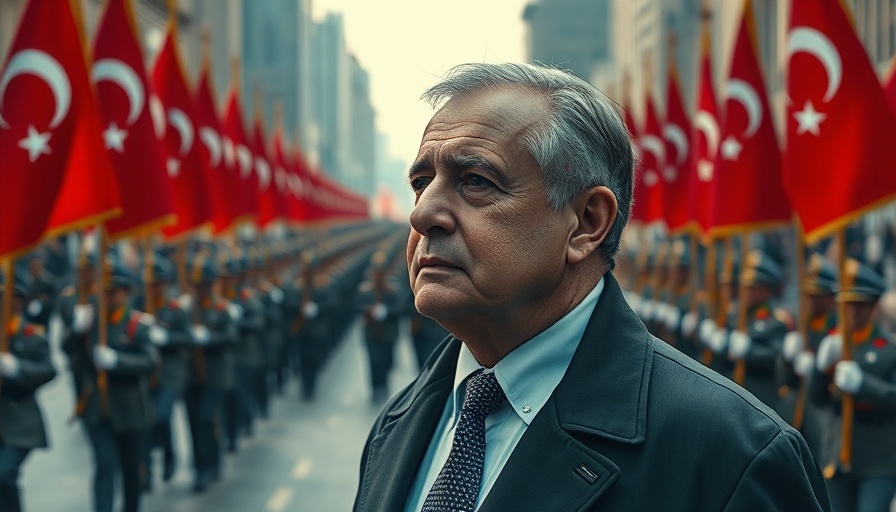
Turkey’s Evolving Diplomatic Landscape
Turkey has become a focal point in international politics, especially under President Recep Tayyip Erdogan's leadership. He has skillfully balanced a dual approach: assertive military expansion paired with a diplomatic strategy aimed at reinforcing Turkey's influence abroad. This well-crafted method of engaging with other nations is reshaping perceptions of Turkey, especially in the Middle East where struggles for influence are intense.
The Duality of Erdogan’s Strategy
While President Erdogan maintains a soft-spoken, reconciliatory demeanor toward Europe, his approach in the Middle East suggests a stark contrast. One notable triumph was Turkey's increased engagement with various factions and nations, establishing itself as a key mediator in regional disputes. However, despite diplomatic achievements, Erdogan continues to focus on military enhancements that elevate Turkey's status in the region.
Why This Matters for Christians and Human Rights Advocates
For many Christians and human rights advocates, understanding Erdogan’s tactics is pivotal. As Turkey's role expands geographically, the implications for religious minorities are significant. The Christian community, often subject to persecution and marginalization, remains under pressure in the geopolitical landscape. A keen understanding of Erdogan's balancing act can help faith-based organizations strategize more effectively in their advocacy efforts.
Current Events and the Importance of Awareness
The current dynamic in Turkey and its foreign policy carries broader implications for global stability. Recent escalations have drawn attention to the intertwined nature of military and diplomatic strategies. Observers are noting how these developments can potentially impact the welfare of vulnerable groups, particularly in conflict-affected areas.
Looking Ahead: Predictions and Opportunities
As Turkey's influence continues to grow, the question arises: how will this shift affect the landscape for persecuted Christians and other minorities in the region? Advocates may find opportunities in new collaborations with local groups focused on justice and peace. Understanding Erdogan's strategy allows for developing meaningful dialogues and initiatives that could promote better outcomes for those suffering from persecution.
Conclusion: The Power of Knowledge in Advocacy
Staying informed about Turkey’s foreign and domestic strategies equips supporters of persecuted communities with the insight necessary to advocate effectively. Understanding the implications of Erdogan's strategies could lead to actionable plans that bolster support for Christians facing adversity in an ever-complex geopolitical climate.
 Add Row
Add Row  Add
Add 








Write A Comment